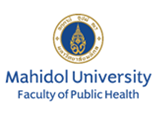[Event Report] Global Health Education Program (G-HEP) 2021-2022 — Global Health Academy Lecture 3: Healthy Ageing Communities in the Era of COVID-19 Pandemic (April 7, 2021)
date : 4/16/2021
Tags: Global Health
![[Event Report] Global Health Education Program (G-HEP) 2021-2022 — Global Health Academy Lecture 3: Healthy Ageing Communities in the Era of COVID-19 Pandemic (April 7, 2021)](https://hgpi.org/en/wp-content/uploads/sites/2/ghep2021-04.jpg)
The Global Health Education Program (G-HEP) held its Third lecture of the Global Health Academy on April 7, we welcomed Dr. Myo Nyein Aung, associate professor of global health from Juntendo University. Dr. Aung’s area of research covers health promotion, long-term care for the ageing, and prevention of non-communicable diseases and infectious diseases. He presented on the topic of “Healthy Ageing Communities in the Era of COVID-19 Pandemic”.
The ageing population in Asia is growing at an unprecedented rate, with Japan leading the world with the highest proportion of elderly people, and Thailand also experiencing increases in its elderly population each year. Both countries have placed finding innovative solutions to promote healthy ageing at the top of their agendas.
Dr. Aung’s lecture was given in two parts which focused on his own research projects in Thailand and Japan, covering community integrated initiatives to promote healthy ageing. Part 1 introduced his research on “Community Integrated Intermediary Care (CIIC) to enhance family-based long-term care for the older people in Thailand”. In Thailand family-based care has traditionally been the model adopted for caring for ageing family members. However, as society changes, this model is becoming unsustainable for a number of reasons: families becoming smaller and an increasing burden of noncommunicable disease and age-related morbidity. These changes have resulted in a need for new approaches such as the CIIC model that can provide the necessary care to meet the demands of caring for older family members.
Part 2 focused on “Sustainable health promotion for the seniors in the communities of Tokyo in the era of COVID-19 pandemic”. As Japan already has years of experience when it comes to the ageing population there have been many efforts made by the national and local governments to create a more inclusive community for the ageing population. The focus is placed on health promotion and empowering the elderly to take an active role in the community. The COVID-19 pandemic put a stop to many of the services and activities for the elderly, and the lecture addressed alternative methods that were initiated allowing for a safe way for elderly to sustain health promotion activities and maintain optimal health.
Many countries in Asia share similar family-based cultures and long-term care systems, so the examples from both Thailand and Japan could be adopted in other countries looking to implement a similar model in the future.
Our next lecture on Health Technology will take place May 12th.
■ Program Lectures
1) Thailand’s Health System and COVID-19 (complete)
2) Japan’s Health System and COVID-19 (complete)
3) Community Health
4) Health Technology
5) Global Health
6) Migrant Health
7) Quantitative and Qualitative Research
8) Policy Recommendations and Advocacy
The Global Health Education Program (G-HEP) is a joint program organized by the Health and Global Policy Institute and Mahidol University, Faculty of Public Health in Thailand.
■About Mahidol University
Mahidol University is the number one university in Thailand for medical education and the first public health academic institution in Thailand.
Vision:
Be a leader in promoting population health through being a health literate faculty in ASEAN countries by 2021.
Mission:
1. To offer an outcome based public health education through being a health literate faculty.
2. To be visible as a leader in public health education, integrative and innovative research, professional academic services on the basis of good governance to promote health and longevity and the betterment of mankind.
Top Research & Recommendations Posts
- [Policy Recommendations] The Path to a Sustainable Healthcare System: Three Key Objectives for Public Deliberation (January 22, 2026)
- [Research Report] The 2025 Public Opinion Survey on Healthcare in Japan (March 17, 2025)
- [Research Report] Perceptions, Knowledge, Actions and Perspectives of Healthcare Organizations in Japan in Relation to Climate Change and Health: A Cross-Sectional Study (November 13, 2025)
- [Policy Recommendations] Reshaping Japan’s Immunization Policy for Life Course Coverage and Vaccine Equity: Challenges and Prospects for an Era of Prevention and Health Promotion (April 25, 2025)
- [Research Report] The 2023 Public Opinion Survey on Satisfaction in Healthcare in Japan and Healthcare Applications of Generative AI (January 11, 2024)
- [Research Report] AMR Policy Update #4: Cancer Care and AMR (Part 1)
- [Public Comment Submission] “Assessment Report on Climate Change Impacts in Japan (Draft Overview)” (December 24, 2025)
- [Policy Recommendations] Developing a National Health and Climate Strategy for Japan (June 26, 2024)
- [Research Report] The Public Opinion Survey on Child-Rearing in Modern Japan (Final Report) (March 4, 2022)
- [Research Report] Survey of Japanese Physicians Regarding Climate Change and Health (December 3, 2023)
Featured Posts
-
2026-01-09
[Registration Open] (Hybrid Format) Dementia Project FY2025 Initiative Concluding Symposium “The Future of Dementia Policy Surrounding Families and Others Who Care for People with Dementia” (March 9, 2026)
![[Registration Open] (Hybrid Format) Dementia Project FY2025 Initiative Concluding Symposium “The Future of Dementia Policy Surrounding Families and Others Who Care for People with Dementia” (March 9, 2026)](https://hgpi.org/en/wp-content/uploads/sites/2/dementia-20260309-top.png)
-
2026-02-05
[Registration Open] (Webinar) The 141st HGPI Seminar “Current Status and Future Prospects of Korea’s Obesity Policy: Voices of People with Lived Experience in Policy Promotion” (March 3, 2026)
![[Registration Open] (Webinar) The 141st HGPI Seminar “Current Status and Future Prospects of Korea’s Obesity Policy: Voices of People with Lived Experience in Policy Promotion” (March 3, 2026)](https://hgpi.org/en/wp-content/uploads/sites/2/hs141-top-1.png)
-
2026-02-06
[Research Report] AMR Policy Update #5: Cancer Care and AMR (Part 2)
![[Research Report] AMR Policy Update #5: Cancer Care and AMR (Part 2)](https://hgpi.org/en/wp-content/uploads/sites/2/HGPI_20260204_AMR-Policy-Update-5.png)





